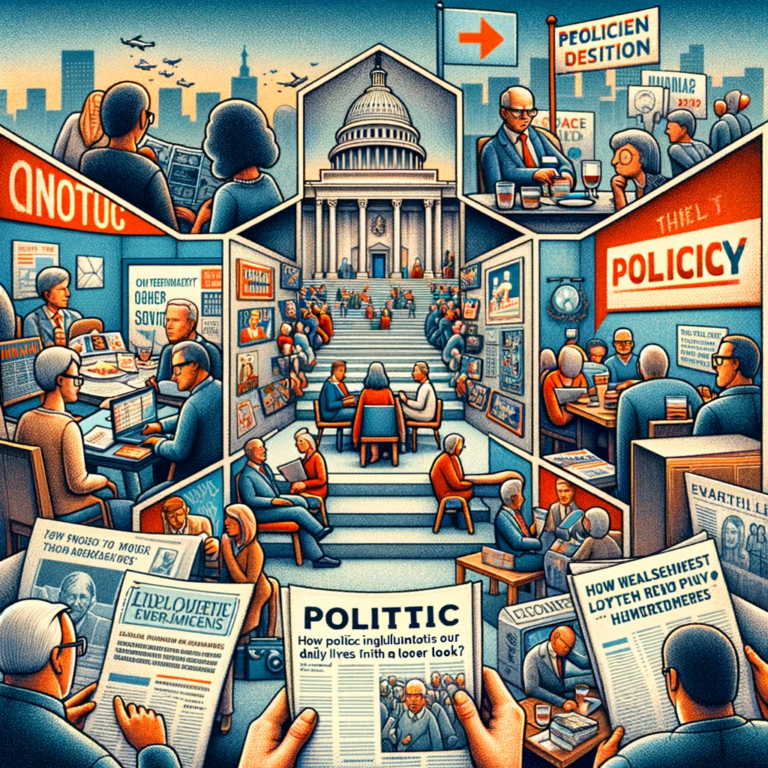Ethical Concerns in Political Advertising
Political advertising plays a crucial role in modern elections, shaping public opinion and influencing voter behavior. However, it also raises numerous ethical concerns that merit serious discussion. In this article, we will explore the ethical issues associated with political advertising, provide examples, and offer tips to help readers better understand this complex subject.
The Power of Political Advertising
The Influence of Media
Political advertising is a powerful tool because it leverages the reach and influence of various media platforms. Television, radio, print, and digital media are all utilized to disseminate campaign messages. This broad reach ensures that political ads can sway a significant portion of the electorate.
The Purpose of Political Ads
Political ads aim to inform, persuade, and mobilize voters. They often highlight a candidate’s strengths, critique opponents, and address key issues. However, the methods used to achieve these goals can sometimes cross ethical lines.
Ethical Issues in Political Advertising
Misinformation and Deception
One of the most significant ethical concerns in political advertising is the dissemination of misinformation. Ads may present false or misleading information about a candidate or issue, intentionally deceiving voters. This practice undermines the democratic process by preventing voters from making informed decisions.
Example: The Swift Boat Veterans for Truth
A notable example is the 2004 presidential election when the Swift Boat Veterans for Truth released ads questioning John Kerry’s military service. These ads were widely criticized for being misleading and unfair, yet they had a significant impact on public perception.
Negative Advertising
Negative advertising, or attack ads, focus on criticizing an opponent rather than promoting the candidate’s own platform. While some argue that negative ads are a legitimate part of political discourse, others believe they contribute to voter cynicism and disengagement.
Example: The Daisy Ad
The 1964 “Daisy” ad, which implied that electing Barry Goldwater could lead to nuclear war, is one of the most infamous attack ads in history. It played on voters’ fears rather than presenting a positive vision for the future.
Targeting and Privacy Concerns
With the advent of digital advertising, campaigns can now target specific demographics with tailored messages. While this can be an effective strategy, it raises privacy concerns. The collection and use of personal data without consent can be seen as an invasion of privacy.
Example: Cambridge Analytica
The Cambridge Analytica scandal highlighted the ethical issues surrounding data use in political advertising. The firm collected data from millions of Facebook users without their consent and used it to create targeted political ads, sparking a global debate on privacy and ethics.
The Role of Transparency in Ethical Political Advertising
Transparency is crucial in ensuring ethical, political advertising. Campaigns should disclose the sources of their funding and the intentions behind their ads. This openness helps to build trust with voters and promotes a more informed electorate. Transparency not only enhances accountability but also deters unethical practices such as misinformation and deception. By being transparent, political campaigns can foster a healthier democratic process where voters can make decisions based on accurate and honest information.
Strategies for Ethical Political Advertising
To address these ethical concerns, campaigns can adopt several strategies:
- Fact-Checking: Ensuring all claims made in ads are accurate and supported by evidence.
- Positive Messaging: Focusing on promoting the candidate’s platform rather than attacking opponents.
- Data Ethics: Respecting voter privacy and using data responsibly.
- Transparency: Clearly disclosing funding sources and the intent behind ads.
- Regulation Compliance: Adhering to legal standards and guidelines set by election commissions.
The Impact of Ethical Advertising on Democracy
Building Trust with Voters
Ethical, and political advertising can build trust between candidates and voters. When campaigns are transparent and truthful, they demonstrate respect for the electorate, which can lead to increased voter engagement and participation.
Promoting Informed Decision-Making
By avoiding misinformation and deceptive practices, ethical ads help voters make informed decisions. This is essential for the functioning of a healthy democracy, where citizens have the knowledge needed to choose their representatives wisely.
Enhancing Civic Engagement
Positive and ethical political advertising can inspire civic engagement. When voters feel respected and informed, they are more likely to participate in the democratic process, from voting to engaging in political discussions.
Challenges in Implementing Ethical Standards
Balancing Free Speech and Ethics
One of the primary challenges in implementing ethical standards in political advertising is balancing free speech with moral considerations. Political speech is protected under the First Amendment, making it challenging to regulate content without infringing on constitutional rights.
Enforcement and Accountability
Ensuring compliance with ethical standards requires robust enforcement mechanisms. This can be challenging given the vast number of ads produced during election cycles and the difficulty in monitoring all content across multiple platforms.
The Role of Social Media Platforms
Social media platforms play a significant role in political advertising today. These companies must take responsibility for monitoring and regulating the ads they host to ensure they adhere to ethical standards. However, this raises questions about the extent of their responsibility and the potential for censorship.
Conclusion
Ethical concerns in political advertising are complex and multifaceted. From misinformation and deceptive practices to privacy issues and negative ads, the moral landscape of political advertising is fraught with challenges. However, by adopting strategies such as fact-checking, promoting positive messaging, and ensuring transparency, campaigns can navigate these challenges and contribute to a healthier democratic process.
Ultimately, ethical, political advertising not only builds trust and promotes informed decision-making but also enhances civic engagement. By addressing these moral concerns, we can work towards a more just and democratic society where political advertising serves the public good rather than undermining it.






